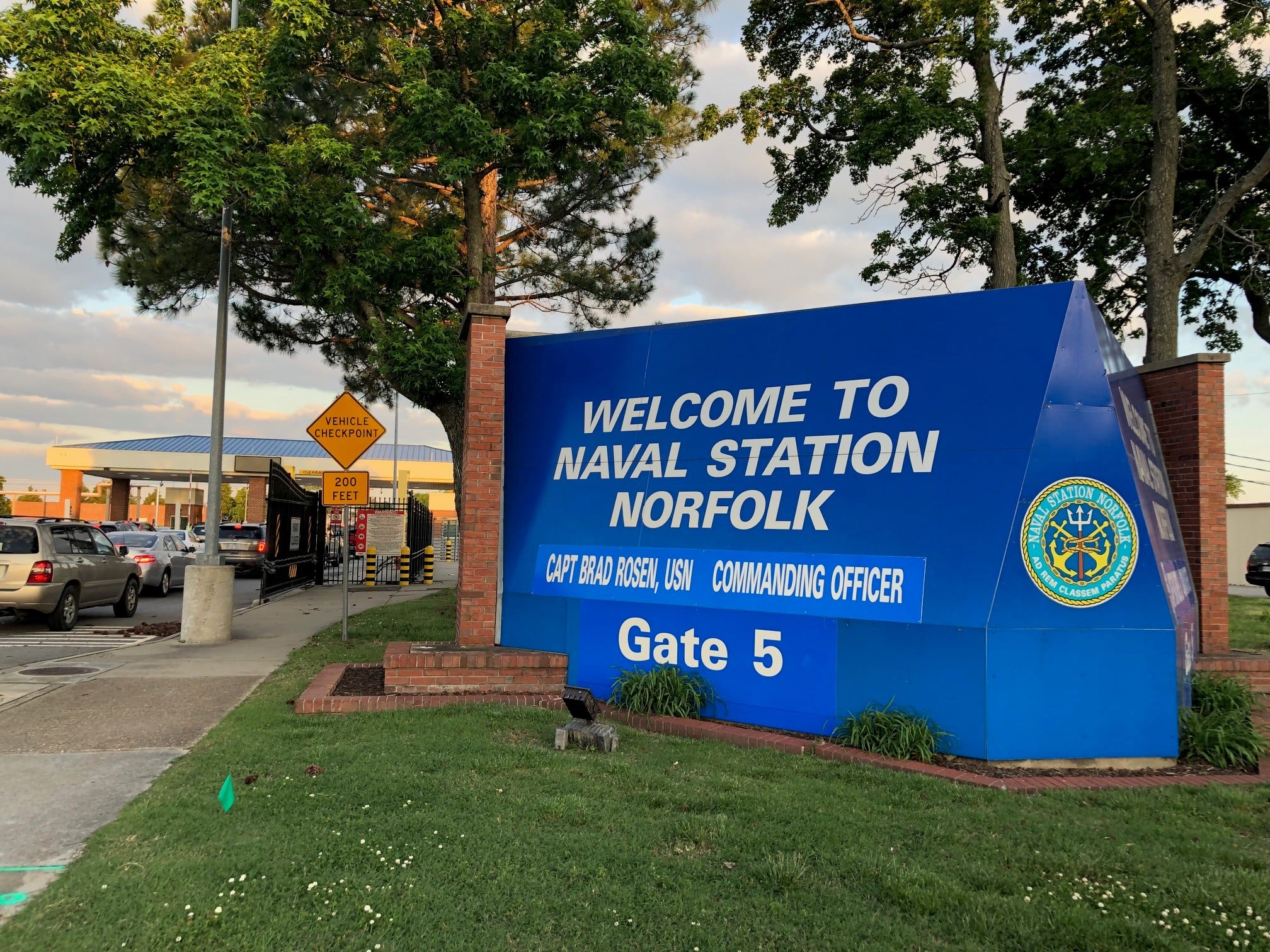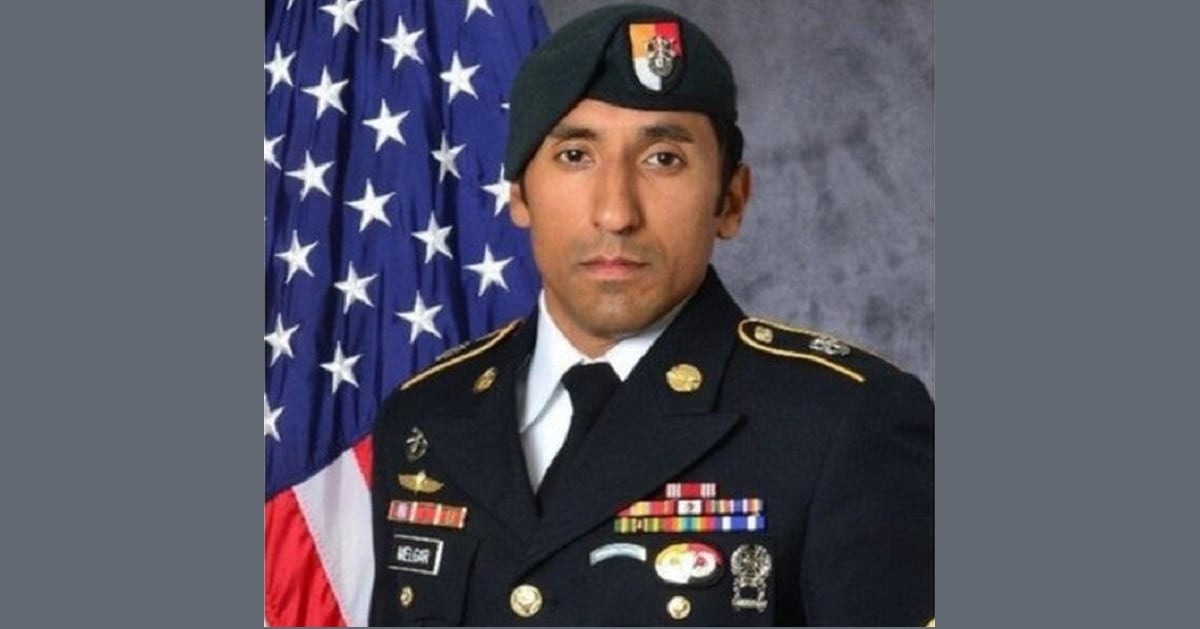NAVAL STATION NORFOLK, Va. – Opening statements are scheduled to begin Friday in the murder trial of a Marine Raider facing life in prison in connection with the strangulation death of an Army Green Beret.
Gunnery Sgt. Mario A. Madera-Rodriguez faces the following charges in the June 4, 2017, strangulation death of Army Staff Sgt. Logan Melgar: conspiracy, assault, obstruction of justice, burglary, false official statements, involuntary manslaughter and felony murder.
RELATED

Jury selection concluded late Thursday night. The all-male eight-member jury contains four enlisted and four commissioned officers, four Navy members and four Marines. Attorneys started the trial Monday with a pool of 13 jurors, some were eliminated through challenges and others through dismissal due to conflicts with serving for the scheduled three-week trial.
Through most of the week of jury selection, military judge Marine Col. Scott Woodard and the prosecution and defense team have been focused on specific areas of questions to determine if individual jurors should be part of the eight-member panel that hears what is expected to be a two-week trial.
Madera-Rodriguez chose a jury trial in his general court-martial. That means jurors will also have a say in his sentencing if he is convicted. Regulations state that he must be tried by a jury of equal or greater rank.
The highest-ranking member of the jury is a Navy commander, or O-5. The enlisted members include three E-9s and one E-8; three Marines and one sailor.
The gunnery sergeant is the last of four co-defendants to face his charges in court. He is the only one to take his case to trial. If convicted of the felony murder charge, the maximum sentence is life without parole.
The other three defendants accepted plea deals in separate proceedings to lesser charges between May 2019 and January 2021.
The three co-defendants received a range of punishment from one-year confinement, rank reduction and a bad conduct discharge to 10 years in prison, rank reduction and a dishonorable discharge.
Prosecutors include Navy Cmdrs. Bryan Barletto and Benjamin Garcia and Marine Capt. Jason Samuel. Madera-Rodriguez’ defense team includes retired Marine judge advocate Colby Vokey, Marine Lt. Col. Timothy Kuhn and Marine Capt. Elliot Huss.
The judge and attorneys have all mirrored each other in the focus of their questions, focusing especially on the prospective jurors’ experience with the special operations community, their involvement with non-judicial punishment and other Uniform Code of Military Justice and impressions of law enforcement and the courts.

What’s received particular attention is if jurors have had experience with hazing, their views on such practices and if they have any knowledge or experience with submission holds, such as choke holds.
A number of jurors had experience with military hand-to-hand combat training that included chokeholds.
All had received hazing training, many being senior in rank shared experiences with hazing conduct and how certain practices once not considered hazing had changed over time from when they first enlisted in the 1990s or early 2000s, and currently.
That’s important to the trial because Madera-Rodriguez faces a hazing charge and in past court events, other defense teams have characterized what happened to Melgar as an episode of hazing or a prank gone terribly wrong.
Based on trial testimony and evidence at the other court proceedings made public since 2017:
Navy SEAL, Chief Special Warfare Officer Adam C. Matthews came to Bamako, Mali, a day before the incidents that led to Melgar’s death. He was there to meet with Chief SWO Tony E. DeDolph and other members of the special operations team in the country working contingency planning support with the U.S. Embassy.
But DeDolph told Matthews that he and others had problems with Melgar and wanted to conduct a hazing party on him to put him in check. Little detail has been revealed about what DeDolph and others had problems with regarding Melgar, other than one incident mentioned in previous court proceedings.
DeDolph and another team member claimed that Melgar had ignored them while driving by on his way to an embassy party and the men felt snubbed.
Later interviews showed that Melgar was fed up with “juvenile behavior” by DeDolph and other teammates and was eager to finish his deployment and return home. He didn’t disclose specifics but complained to friends about friction in the group.
Madera-Rodriguez, Matthews, DeDolph, and Marine Raider Staff Sgt. Kevin Maxwell Jr. were out drinking the night of June 3 and talking about Melgar. That back-and-forth ultimately became a quasi-tactical plan to ambush and haze Melgar.
The men got a sledgehammer and duct tape and planned to bust in Melgar’s bedroom door as he slept. They would then hold him down, tie him up and take sexually compromising photos of him with a near-naked Mali man they’d recruited for the stunt who had a belt tied around his neck to simulate a leash.
The group named the event “Operation Tossed Salad,” a slang reference to a sex act that includes mouth to anus licking.
Because those planned acts didn’t take place, the military judge waived off the prosecution’s request to mention them in their statements to the jury. The judge also warned the defense team that if they pushed too far to call the planned hazing a prank or fraternity-type antics, that might open the door enough for the prosecutors to use that information with the jury.
The quartet and the Malian man lined up outside Melgar’s door and broke through with the sledgehammer.
Startled awake, Melgar struggled to fight back. But DeDolph, a former professional mixed martial artist, put the staff sergeant in a chokehold as the others began to duct tape him down.
As they struggled, Melgar stopped breathing.
The group stopped restraining him and started to try to resuscitate him. They even tried a field-expedient tracheotomy, which didn’t help. They finally took him to a nearby medical clinic, but he could not be revived.
The two SEALs told the Marines they’d talk with authorities and not mention them and made up a story that they had been practicing hand-to-hand combat drills with Melgar, who stopped breathing. They later said they thought Melgar had been drinking, which may have contributed.
But witnesses later told investigators that Melgar didn’t drink alcohol.
DeDolph pleaded guilty in January to involuntary manslaughter. He was sentenced to 10 years in prison, reduction to E-1, forfeiture of pay and a dishonorable discharge.
Maxwell pleaded guilty in June 2019 to negligent homicide, conspiracy to commit assault, hazing, obstruction of justice and making false official statements. He received four years of confinement, reduction in rank to E-1 and a bad conduct discharge.
Matthews pleaded guilty in May 2019 to the conspiracy and related charges. He was given one year of confinement, reduction to petty officer second class and a bad conduct discharge.
Todd South has written about crime, courts, government and the military for multiple publications since 2004 and was named a 2014 Pulitzer finalist for a co-written project on witness intimidation. Todd is a Marine veteran of the Iraq War.




